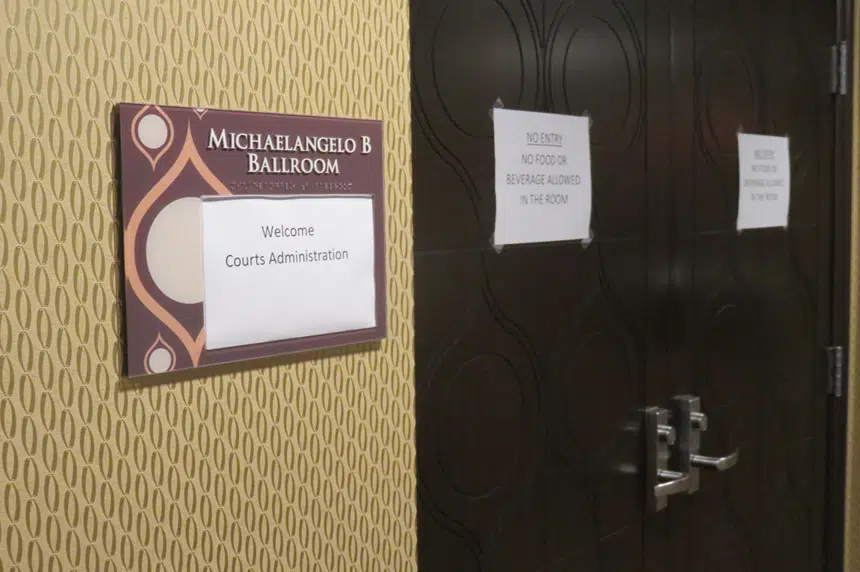Time was a major theme at an unorthodox federal court hearing held Thursday at Saskatoon’s Radisson Hotel.
The hearing was for victims of the Sixties Scoop – which saw thousands of Canadian Indigenous children taken from their birth homes throughout the 1960’s and adopted out to mainly non-Indigenous families.
About 100 victims gathered to voice their concerns over an $875 million settlement between First Nations, Inuit and the federal government.
Many at the hearing voiced frustration at how much time was given to lawyers to express their legal opinions on the settlement, while victims — who have waited decades for reparations — were given three minutes each to explain their position.
“Three minutes isn’t nearly enough to say what I had to say,” said Nick Helliwell, one of the first civilian presenters.
The national “fairness” hearing was set in Saskatoon to gather objections to the settlement, which is to be split between victims, a Sixties Scoop foundation and lawyers who negotiated the deal.
The objections include concerns over the exclusion of Métis and non-status Indians from the settlement, while others took issue with the total amount of the agreement.
Many also criticized a stipulation to pay the four law firms involved in the deal $75 million.
“They’re getting $18.75 million each, while survivors are only getting between $25,000 and $50,000,” noted a survivor who spoke via video from Vancouver.
“There’s something wrong with that picture.”
Given the large number of people wishing to present their thoughts, the court session was moved from Saskatoon’s Court of Queen’s Bench to the Radisson’s Michelangelo ballroom.
The hearing was scheduled to run Thursday and Friday.
Many of the victims expressed surprise at not being able to speak until Thursday afternoon, after lawyers spoke for up to an hour each during the morning sitting.
“They took up the court’s time, and it was supposed to be for us,” Leticia Racine said.
Several people in the gallery said they were dismayed to learn the court forum was not for them to describe their experiences of being taken from their families and raised by non-Indigenous adoptive parents.
However, Justice Michel Shore told them the stories would be heard through the Sixties Scoop Foundation, which is set to receive $50 million from the settlement.
“The stories of each individual, if not told here, will be told. They have to be told.”
Shore’s remarks drew applause from the crowd, as did other testimonies that drew attention to the need for continued government support and those who criticized lawyer payments.
Typically in federal court cases, applause is discouraged. However, Shore didn’t intervene during Thursday’s hearing.
He also assured the crowd the court would continue late into the evening if needed.
“No voice will be left unheard.”







